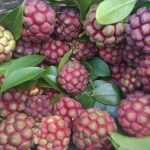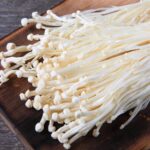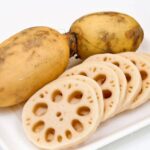The betel market is experiencing a surge in prices, ranging from 80,000 to 90,000 VND per kg. With this price, a family that harvests a ton of betel nuts can earn an amount equivalent to a bar of 9999 gold. It is predicted that betel prices may continue to rise, as the main consumer, China, is still buying in large quantities. Fresh betel nuts are processed to make betel nut candies, betel nut tea, or some dishes and herbal remedies.
According to experts, betel nuts are rarely used as food, but they are a medicinal herb with many health benefits. Not only the nuts, but many other parts of the betel tree, such as the roots and flowers, are also used as herbal remedies when applied correctly and in moderation.
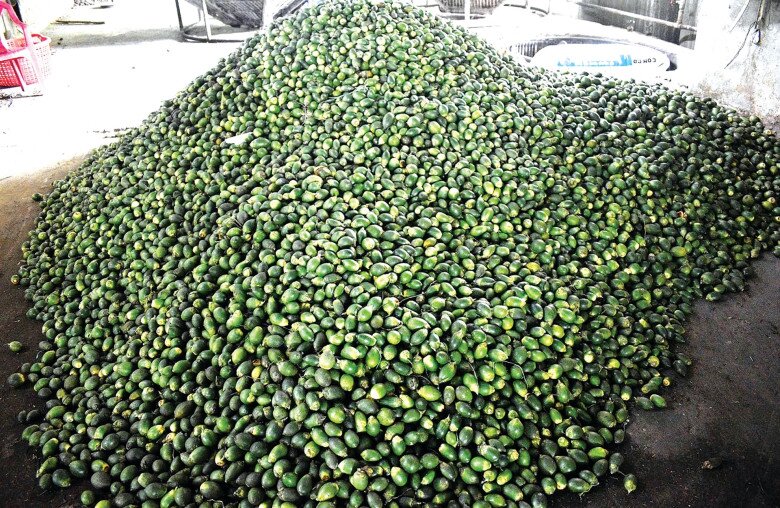
Betel nuts are currently very expensive, ranging from 80,000 to 90,000 VND per kg. Illustrative image.
Herbalist Bui Dac Sang, from the Hanoi Oriental Medicine Association, shared that the most utilized and beneficial part of the betel nut is its seed, while the fleshy part of the nut is also edible. In Oriental medicine, betel nuts are called “Tan lang” or “Binh lang.” They have an astringent and bitter taste and are used to treat ailments such as parasitic worms, indigestion, bloating, chest tightness, dysentery, intestinal inflammation, and edema.
Modern medical research also indicates that betel nuts contain tannins and other substances such as arecoline and arecailin, which increase saliva production, enhance gastric and intestinal secretions, constrict the pupils (beneficial for those with glaucoma), reduce heart rate, and increase intestinal motility.
Notably, a study published on HealthBenefitsTimes revealed that arecoline, one of the active compounds in betel nuts, helps regulate blood sugar levels and prevents diabetes. Additionally, the nuts can stimulate saliva production, alleviating dry mouth symptoms in diabetic patients.
Furthermore, extracts from betel nuts have been found to inhibit harmful bacteria in the oral cavity and remove plaque from teeth. This helps prevent and effectively treat dental issues such as toothache, halitosis, and gingivitis.
Mr. Sang attributed the aforementioned dental benefits to the traditional practice of chewing betel nuts to promote oral health and prevent tooth decay and gum disease. However, with the advent of modern science and the introduction of toothpaste, the consumption of betel nuts has significantly decreased.
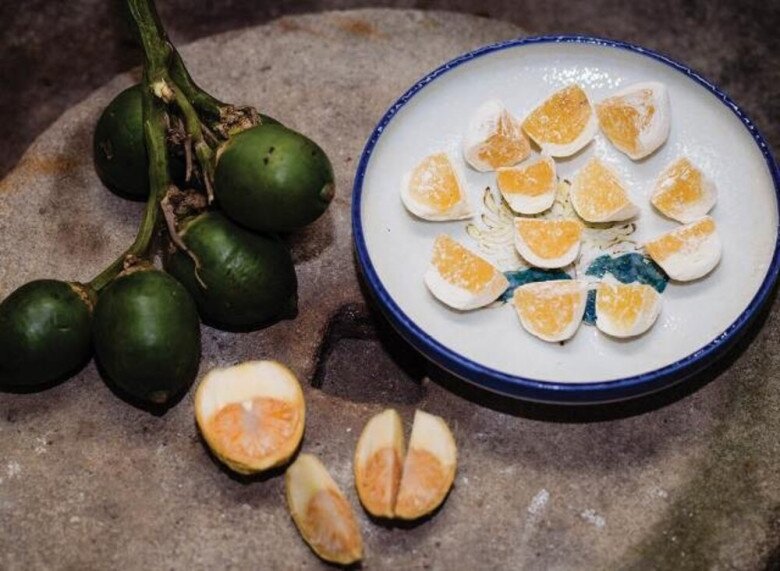
Betel nuts are used to make candies and offer various health benefits. Illustrative image.
Another common use of betel nuts is deworming, as they contain non-toxic alkaloids to the human body but are toxic to the nervous system of parasites. Therefore, a solution derived from betel nuts can be a safe and effective deworming agent.
Here are some herbal remedies using betel nuts that you can refer to:
– To expel hookworms: Use 20g of betel nuts and 30g of white root bark from the Toona sinensis tree. Boil this mixture to reduce it to 60ml, then add some sugar. Drink this before bedtime or on an empty stomach for two consecutive days.
– To eliminate tapeworms: Cut or crush 100g of betel nuts into thin slices and soak them in 500ml of water for 12 hours. Boil the mixture until it reduces to 200ml and divide it into three doses to be consumed in the early morning on an empty stomach.
– To treat malaria: Use 2g of betel nuts, 1g of grass seeds, 4g of Catanache caespitosa, and 6g of Beijing pea tree roots. Boil 600ml of water with these ingredients until it reduces to 200ml. Drink this mixture three times a day.
– To alleviate edema and phlegm accumulation: Grind 10g of betel nuts into a powder and mix it with boiling water or brew it like tea. Consume this several times a day.
– To relieve bloating and indigestion: Boil 10g of betel nuts with 10g of mountain peach seeds and drink the infusion.
– To treat constipation, frequent urination, and stomach ache: Boil 10g of betel nuts with 10g of dried lotus seeds and consume the infusion while it is still hot.
Herbalist Bui Dac Sang emphasized that while betel nuts are not toxic or harmful to health, it is essential to consult a specialist when using them for medicinal purposes, especially regarding the appropriate dosage.


























